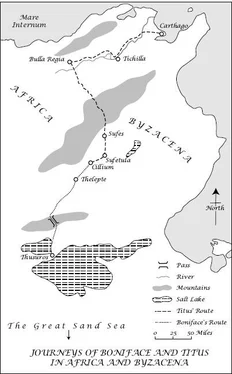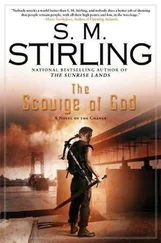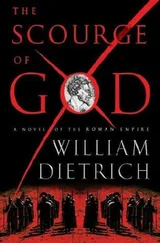Ross Laidlaw - Attila:The Scourge of God
Здесь есть возможность читать онлайн «Ross Laidlaw - Attila:The Scourge of God» весь текст электронной книги совершенно бесплатно (целиком полную версию без сокращений). В некоторых случаях можно слушать аудио, скачать через торрент в формате fb2 и присутствует краткое содержание. Жанр: Исторические приключения, на английском языке. Описание произведения, (предисловие) а так же отзывы посетителей доступны на портале библиотеки ЛибКат.
- Название:Attila:The Scourge of God
- Автор:
- Жанр:
- Год:неизвестен
- ISBN:нет данных
- Рейтинг книги:5 / 5. Голосов: 1
-
Избранное:Добавить в избранное
- Отзывы:
-
Ваша оценка:
- 100
- 1
- 2
- 3
- 4
- 5
Attila:The Scourge of God: краткое содержание, описание и аннотация
Предлагаем к чтению аннотацию, описание, краткое содержание или предисловие (зависит от того, что написал сам автор книги «Attila:The Scourge of God»). Если вы не нашли необходимую информацию о книге — напишите в комментариях, мы постараемся отыскать её.
Attila:The Scourge of God — читать онлайн бесплатно полную книгу (весь текст) целиком
Ниже представлен текст книги, разбитый по страницам. Система сохранения места последней прочитанной страницы, позволяет с удобством читать онлайн бесплатно книгу «Attila:The Scourge of God», без необходимости каждый раз заново искать на чём Вы остановились. Поставьте закладку, и сможете в любой момент перейти на страницу, на которой закончили чтение.
Интервал:
Закладка:
Chapter 39
292 ‘a strip of territory south of the Danubius. . to be ceded to the Huns’. Probably Attila’s aim was not to occupy this strip but to create a ‘cleared zone’ to facilitate any future re-invasion of Roman territory.
Chapter 40
301 ‘Constantius was bribed to kill me’. For full details of the conspiracy masterminded by Chrysaphius, see Gibbon, The Decline and Fall of the Roman Empire , Chapter 34.
Chapter 42
307 ‘regiment of Scholae ’. Based in Constantinople, the imperial bodyguard consisted of seven elite cavalry regiments known as scholae . A select group of forty chosen from their number and known as candidati , formed the Emperor’s personal retinue. Individuals from the scholae often served as imperial agents, carrying out missions in the provinces.
307 ‘a mountainous plateau between the Pontus Euxinus and the Mare Caspium’. Armenia was the interface for the Roman world’s equivalent of ‘the Great Game’. For Afghanistan, read Armenia; for Britain, Rome; for Russia, Persia. After being occupied by other powers for nearly two millennia, from Rome and Persia to Turkey and the Soviet Union, Armenia has at last regained its autonomy.
308 ‘Take your pick’. In the fifth century, it was dawning on the Roman world, especially Constantinople, that theirs was but one state among many: a perception which contrasted with the fourth-century view that Rome comprised the entire civilized world. The weakening of West Rome and its growing divergence from its Eastern partner, the re-emergence of Persia as a formidable power under the Sassanids, the sudden rise of Attila’s vast empire: all contributed to the shattering of this comfortable illusion. The new reality is illustrated by the diplomatic missions, in the mid-fifth century, of Olympiodorus of Thebes (in Egypt) to Rome, to Nubia, to the Dnieper — accompanied by a parrot speaking pure Attic Greek.
309 ‘ before the conference takes place’. As the Council of Chalcedon, it duly did take place the following year, 451, when the Persian invasion of Armenia also occurred.
315 ‘In the tradition of your Regulus’. Regulus was a Roman consul who, despite knowing the likely consequences to himself, conveyed to the Carthaginians (during the First Punic War) the Senate’s rejection of their offers of peace. According to legend, he was then executed after being hideously tortured.
317 ‘Perhaps the time had come for a final trial of strength’. That time did come, though not for many years. The ‘final solution’ of the centuries-old conflict between Rome and Persia was to be as cataclysmic as it was unexpected. Early in the seventh century, a ferocious Persian general, Shahrvaraz, overran the southern provinces of the East Roman Empire; but in a series of brilliant campaigns the territory was all recovered by the heroic Emperor Heraclius. Then, without warning, fanatical Arab armies inspired by the teachings of Muhammad, swarmed out of the south in the 630s, and in a few short years had swallowed up Persia and reduced the East Roman Empire to an Anatolian rump. 1Roman Christianity in Africa, Egypt, Palestine, and Syria was permanently replaced by Islam.
Chapter 49
359 ‘On the left flank, the Romans waited’. This was the last great field battle fought by the Roman army in the West. (The Roman troops of Majorian, by the time he became emperor, and — after the collapse of the Western Empire in 476 — those of Syagrius, were virtually private armies.) But even after the end of empire, vestiges of Rome’s army lingered on. In 482 a Danubian unit sent to Italy for its final pay instalment; and Procopius writes of soldiers in Frankish service clinging nostalgically to their old legionary structure, complete with standards and traditional Roman uniform. This in the 550s, a century after the Catalaunian Plains. Even in Britain, abandoned by the legions c . 407, units of the limitanei struggled on, until the last of them was wiped out by the Saxon invaders in 491.
Chapter 50
370 ‘we shall establish our supremacy in the most telling manner possible’. It has been said that the Council of Chalcedon (October 451), ‘the accursed Council’ to the monophysites, split the East Roman Empire irreparably, ultimately facilitating the Muslim conquest of Egypt, Palestine, and Syria in the seventh century. This is a fallacy. The imperial administration, coupled with the heroic struggle against Attila (and later that of Heraclius against an aggressive Persia), forged a strong, unified, and patriotic state, in which the Emperor, from Marcian onwards, came to be seen as the ‘little father’ of his people, and a conscientious arbiter in theological disputes. Although the findings of the Council undoubtedly created strains within the empire, they were never serious enough to harm its fabric.
371 ‘the saint’s right arm. . now rested across the withered chest’. Some places seem to have the property not only of arresting the process of decay in a corpse, but of preserving the flexibility of muscles and ligaments. A notable example of this is to be found in St Michan’s Church, Dublin, where the corpses of (reputed) crusaders have been preserved, their limbs still perfectly pliable, by the moisture-absorbing magnesium limestone of the vault.
Chapter 51
379 ‘news of the King’s death’. Following Attila’s demise in 453, his German subjects successfully rebelled, and his empire, without Attila’s huge personality to hold it together, rapidly disintegrated, leaving no mark on posterity except a memory of slaughter and destruction on an epic scale.
Chapter 52
382 ‘Valentinian approached the apparatus’. For a description of a seance using the type of apparatus described in this chapter, see Ammianus Marcellinus, The Histories , Book Two. It bears an uncanny resemblance to a modern seance using a ouija board, or alternatively a circular table with letters of the alphabet round the edge, and a wineglass or tumbler in the centre.
383 ‘the imprisoning of a popular charioteer’. This was carried out by the army commander at Thessalonica, who was then lynched by the mob. As punishment, Theodosius I had seven thousand citizens massacred. In consequence, Ambrose, Archbishop of Milan, refused to admit the Emperor to Mass until he had done penance. A spectacular demonstration of the growing power of the Church, and a harbinger of the medieval doctrine of ‘the Two Swords’. Theodosius kneeling before Ambrose: the image has an eerie parallel to that of Emperor Henry IV of Germany at Canossa, barefoot in the snow before Pope Gregory VII.
Chapter 54
397 ‘a few great villas on the Caelian. . made to serve as hospices’. One such was the House of the Valerii, which remained derelict and unsaleable for some years after the sack of Rome.
409 ‘the twelve centuries assigned to the lifetime of his city’. 753 BC is the date generally accepted for the founding of Rome. The twelfth century would then elapse in AD 447. The Western Empire actually fell in 476. Allowing for some latitude in dating such a distant event as the founding of the city, the prophecy is uncannily accurate.
Afterword
411 ‘not only did he save Europe from Asiatic domination’. The consequences of a Hunnish conquest would have been potentially both devastating and permanent. Gibbon cites instances where whole tracts of Central Asia were reduced in a few years to uninhabitable deserts by invading nomads, whose destruction of forests, irrigation, and infrastructure had effects which lasted for centuries if not permanently.
412 ‘From it developed European medieval civilization’. The building-blocks of medieval Christendom were already in process of formation by the time of the late empire. Feudalism: protection in return for service — was concomitant with a breakdown of security, with powerful landlords recruiting bands of armed retainers, or bucellarii , and peasant labour from coloni fleeing barbarians or rapacious Roman tax officials. The Germans’ sense of honour, love of fighting, and respect for women, provided the germ from which the medieval Code of Chivalry would one day develop. And the Church Militant, with its doctrine of the Two Swords, was beginning to flex its muscles under Theodosius the Great — himself forced to kneel in supplication before Ambrose, and do penance for his sins. Shades of England’s Henry II after Becket’s murder.
Читать дальшеИнтервал:
Закладка:
Похожие книги на «Attila:The Scourge of God»
Представляем Вашему вниманию похожие книги на «Attila:The Scourge of God» списком для выбора. Мы отобрали схожую по названию и смыслу литературу в надежде предоставить читателям больше вариантов отыскать новые, интересные, ещё непрочитанные произведения.
Обсуждение, отзывы о книге «Attila:The Scourge of God» и просто собственные мнения читателей. Оставьте ваши комментарии, напишите, что Вы думаете о произведении, его смысле или главных героях. Укажите что конкретно понравилось, а что нет, и почему Вы так считаете.












